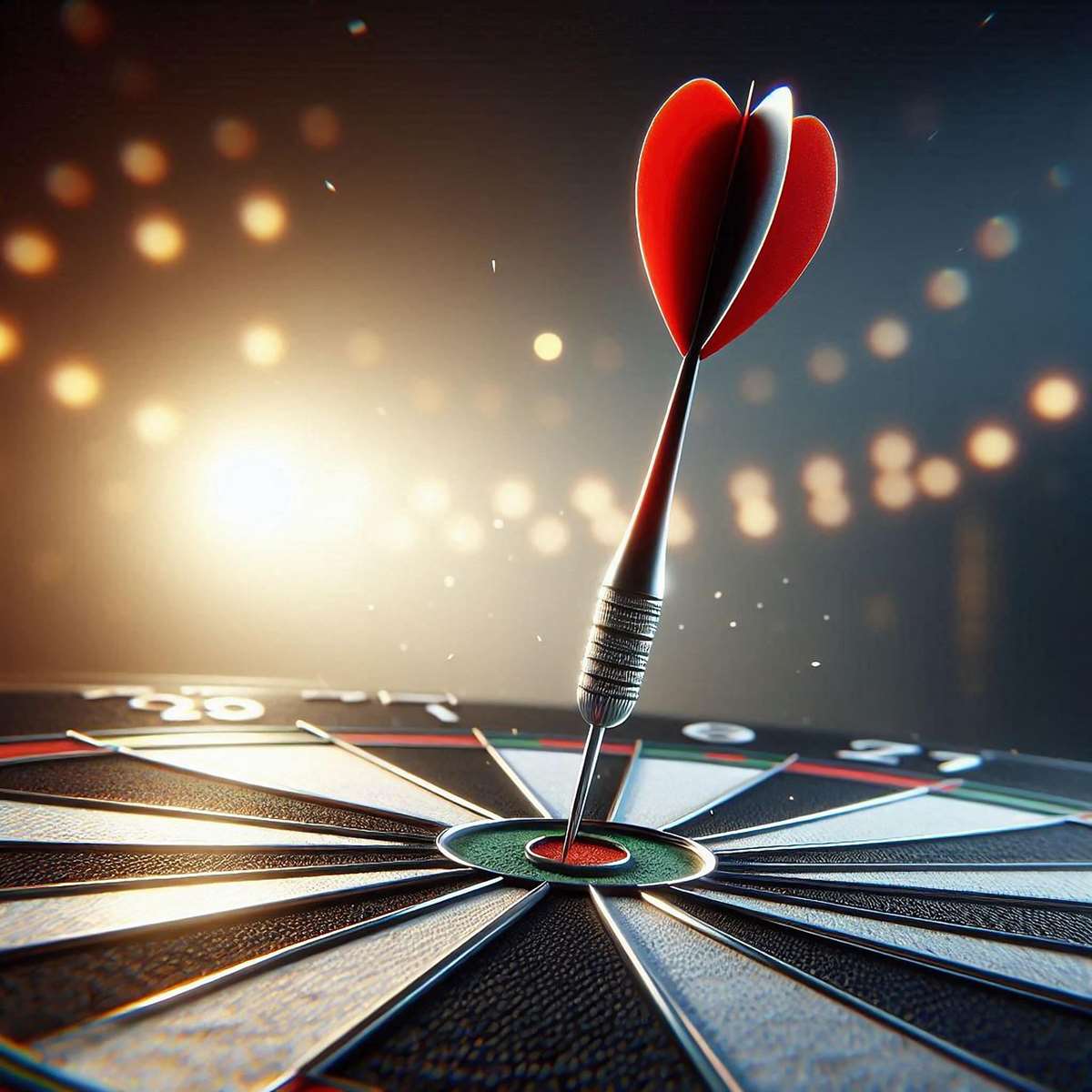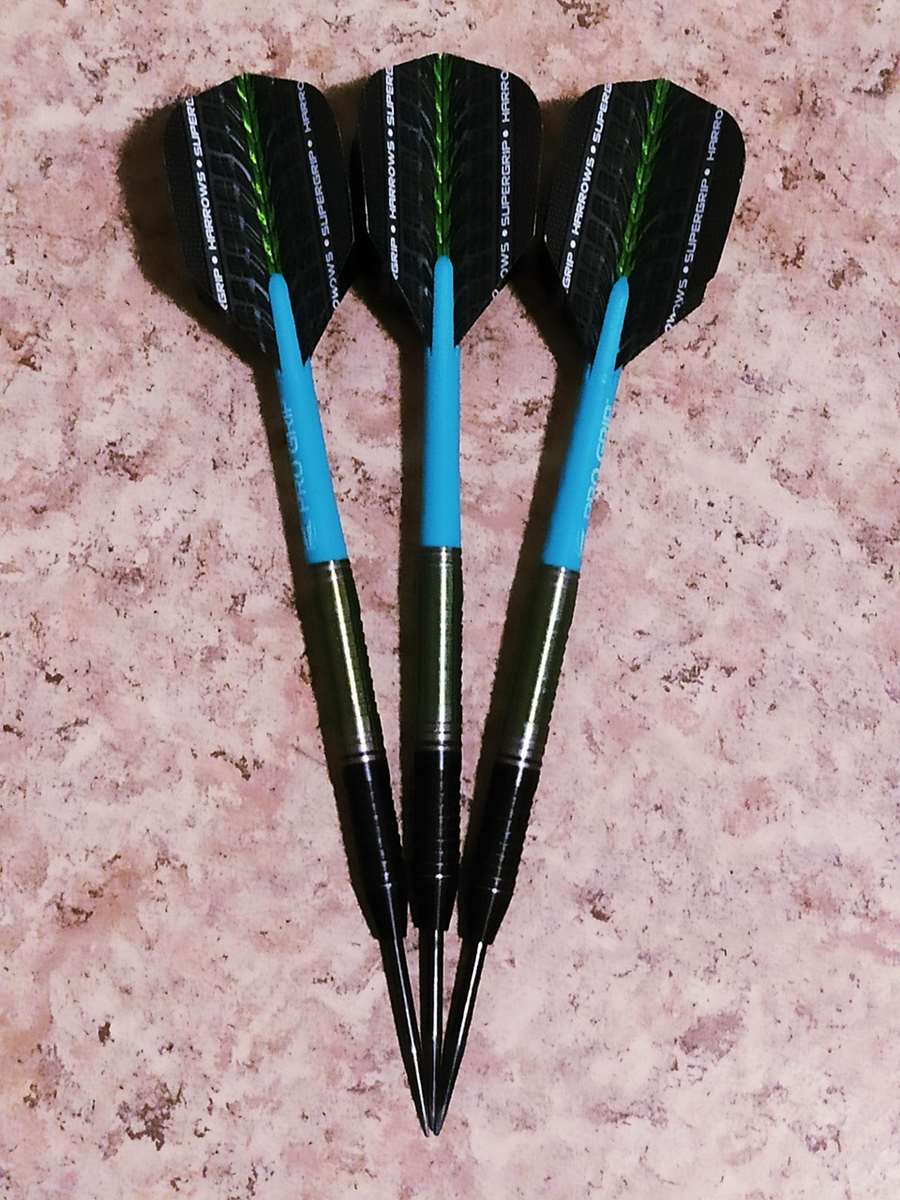Stepping up to the oche comes with responsibilities beyond just hitting your target. This etiquette guide highlights what not to do when playing darts, ensuring a respectful and enjoyable experience for everyone. In this article, we’ll cover everything from avoiding distractions to proper sportsmanship, helping you become a welcome addition to any darts game.
⚠️ Still Using Pen & Paper (or a Chalkboard)?! ⚠️
Step into the future! The Dart Counter App handles all the scoring, suggests checkouts, and tracks your stats automatically. It's easier than you think!
Try the Smart Dart Counter App FREE!Ready for an upgrade? Click above!
What Not to Do When Playing Darts: Etiquette Guide – The Golden Rules
The world of darts, while seemingly simple, has a rich culture of etiquette that ensures fair play and mutual respect. Knowing what not to do when playing darts is just as important as knowing how to throw a perfect dart. Ignoring these unwritten rules can lead to tension, frustration, and even social exclusion from your local darts community. This section outlines the fundamental principles.

Silence is Golden (Mostly)
One of the most crucial aspects of darts etiquette is maintaining appropriate silence. This primarily applies when a player is at the oche, preparing to throw or in the process of throwing their darts. Excessive noise, distracting movements, or heckling are strictly prohibited. However, a polite and encouraging cheer *after* a good throw is generally acceptable.
- Avoid talking during throws: This is the cardinal rule. Wait until the player has retrieved their darts.
- Minimize movement: Sudden movements can be highly distracting. Stand still and observe quietly.
- Keep conversations low: If you must talk, keep your voice down and avoid discussing anything that might be distracting.
Respecting the Oche and the Throw
The oche, or throw line, is sacred ground during a player’s turn. It’s crucial to understand and respect the boundaries – both literally and figuratively. Understanding what not to do when playing darts around the oche is paramount to ensuring fair play.
Oche Etiquette: Boundaries and Focus
- Never cross the oche while a player is throwing: This is a serious breach of etiquette and can significantly impact a player’s concentration.
- Avoid standing directly behind the player: This can be intimidating and distracting. Stand to the side, allowing them a clear view of the board.
- Don’t offer unsolicited advice: Unless specifically asked, refrain from giving tips or critiques on a player’s technique.
Dartboard Do’s and Don’ts
The dartboard itself deserves respect. It’s the focal point of the game, and improper handling can damage it and disrupt play. Knowing the proper handling methods is key to what not to do when playing darts.
Retrieving Your Darts: A Delicate Art
- Avoid excessive force: Pull your darts straight out of the board. Twisting or yanking can damage the sisal fibers.
- Don’t linger at the board: Retrieve your darts promptly to keep the game moving.
- Announce your score clearly: State your score loud enough for the scorer to hear accurately, but without shouting.
It’s also crucial to avoid touching other player’s darts without permission. Each player has their own set, often carefully weighted and balanced to their preference. Handling someone else’s darts without asking is considered impolite and potentially disruptive to their game. Let’s dive into alternative darts rules for home play to better understand some of these nuances within different game styles.

Sportsmanship and Fair Play
Beyond the specific rules of etiquette, good sportsmanship is essential for creating a positive and enjoyable darts experience. Understanding what not to do when playing darts in terms of sportsmanship can prevent unnecessary friction and foster camaraderie. Let’s delve into some examples of good sportsmanship.
Winning and Losing Gracefully
- Avoid gloating: Celebrate your victories modestly. Excessive boasting is poor form.
- Accept defeat gracefully: Don’t make excuses or blame others for your losses. A simple “well played” is sufficient.
- Congratulate your opponent: Acknowledge their skill and effort, regardless of the outcome.
Distractions: A Darts Player’s Nemesis
Minimizing distractions is crucial for maintaining focus and ensuring fair play. Many factors can impact a player’s concentration, from loud noises to disruptive movements. Understanding what not to do when playing darts regarding distractions can significantly enhance the playing environment.
Common Distractions to Avoid
- Mobile phones: Keep your phone on silent or turn it off completely to avoid ringing or buzzing during play.
- Loud conversations: Keep conversations to a minimum and avoid discussing anything that might be distracting.
- Excessive celebrations: While celebrating a good throw is acceptable, avoid excessive or prolonged displays that can disrupt the game.
- Unnecessary movement: Refrain from pacing, fidgeting, or making sudden movements while a player is at the oche.
Mastering darts involves more than just technique; it also requires respecting these crucial guidelines. Additionally, you can also enhance your experience by learning about fun dart game variations with modified rules, which often have their own specific etiquette considerations.

Attire and Appearance
While darts isn’t typically a formal affair, maintaining a reasonable standard of dress is generally expected. Certain attire can be distracting or disrespectful. Knowing what not to do when playing darts in terms of appearance can contribute to a more professional and focused atmosphere.
Dress Code Considerations
- Avoid overly casual attire: While jeans and t-shirts are usually acceptable, avoid wearing excessively revealing or inappropriate clothing.
- Consider footwear: Closed-toe shoes are generally preferred, especially in public venues.
- Remove distracting accessories: Avoid wearing jewelry or accessories that might dangle or make noise during your throw.
Dart Maintenance and Equipment
Taking care of your darts and equipment is not only practical but also demonstrates respect for the game. Neglecting your darts can affect their performance and potentially disrupt play. Understanding what not to do when playing darts regarding equipment maintenance can help you maintain a consistent and reliable game.
Essential Dart Maintenance Tips
- Sharpen your points regularly: Dull points can lead to bounce-outs and damage the dartboard.
- Replace broken flights: Damaged flights can significantly affect the trajectory of your darts.
- Keep your darts clean: Wipe down your darts regularly to remove dirt and grime.
Scoring Disputes and Resolutions
Disagreements over scoring can arise, even among experienced players. It’s essential to handle these situations calmly and fairly. Understanding what not to do when playing darts during scoring disputes can help prevent unnecessary arguments and maintain a positive atmosphere. If there are disagreements, it may be time to see how to make darts fairer with handicap rules.

Resolving Scoring Conflicts
- Remain calm and respectful: Avoid raising your voice or becoming confrontational.
- Review the score together: Carefully examine the board and the scorer’s records.
- Seek a neutral opinion: If you cannot resolve the dispute yourselves, ask a third party to arbitrate.
- Accept the final decision: Once a decision has been made, accept it gracefully, even if you disagree.
Darts, at its core, is a game of skill, precision, and camaraderie. By adhering to these guidelines on what not to do when playing darts, you contribute to a positive and enjoyable experience for everyone involved. Furthermore, remember to be mindful of differing situations, like when adapting dart game rules for children.
Dealing with Difficult Players
Unfortunately, not everyone adheres to the principles of darts etiquette. You may encounter players who are consistently disruptive, unsportsmanlike, or simply unpleasant to play with. Knowing what not to do when playing darts in response to difficult players is essential for protecting your own enjoyment of the game.
Strategies for Handling Difficult Players
- Remain calm and polite: Avoid escalating the situation by responding in kind.
- Address the issue directly but tactfully: If possible, speak to the player privately and explain how their behavior is affecting the game.
- Seek assistance from a venue manager or league official: If the player’s behavior is particularly egregious or persists despite your efforts, involve someone in authority.
- Focus on your own game: Ultimately, the best way to deal with a difficult player is to minimize their impact on your own performance. Try to block out the distractions and concentrate on your throws.

Conclusion: Upholding the Spirit of Darts
Mastering the art of darts involves not only honing your throwing skills but also understanding and adhering to the principles of good etiquette. Knowing what not to do when playing darts: etiquette guide is paramount. This guide has covered key aspects of darts etiquette, from respecting the oche to maintaining good sportsmanship. By embracing these principles, you contribute to a positive and enjoyable atmosphere for all players. Remember, darts is a game of skill, precision, and camaraderie. Upholding the spirit of the game ensures a rewarding experience for everyone involved. So, step up to the oche with confidence, knowing that you’re not just playing darts; you’re contributing to a tradition of fair play and mutual respect. Now, go practice and remember the importance of basic darts fundamentals for beginners.
Hi, I’m Dieter, and I created Dartcounter (Dartcounterapp.com). My motivation wasn’t being a darts expert – quite the opposite! When I first started playing, I loved the game but found keeping accurate scores and tracking stats difficult and distracting.
I figured I couldn’t be the only one struggling with this. So, I decided to build a solution: an easy-to-use application that everyone, no matter their experience level, could use to manage scoring effortlessly.
My goal for Dartcounter was simple: let the app handle the numbers – the scoring, the averages, the stats, even checkout suggestions – so players could focus purely on their throw and enjoying the game. It began as a way to solve my own beginner’s problem, and I’m thrilled it has grown into a helpful tool for the wider darts community.